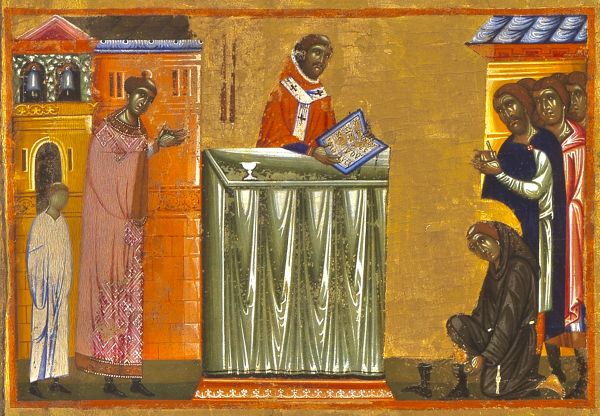In the Regola bollata (1223) Francis of Assisi writes to his brothers:
«In whatever house they enter they are to say, first of all: Peace to this house; and, according to the holy Gospel, it is lawful for them to eat all the food that will be presented to them» (FF 86).
A poor, essential behaviour, suited to the circumstances, without pretence.
A style that also concerns the singular equipment of the route:
«And he commanded them to take nothing on the way except a staff only, neither bread nor saddlebags nor copper for a belt, but having put on sandals not to wear two tunics» (Mk 6:8-9).
All this constituted ‘the pilgrim's kit’ for the sake of Christ and his almighty Word.
For himself and his first companions, Francis had wondered a lot about how to follow the Gospel.
One day*, he entered St Peter's church, where the passage on the mandate given to the Apostles was being read.
"After Mass, he asked the priest to explain the passage to him*. The priest commented on it to him point by point, and Francis, hearing that the disciples of Christ must possess neither gold, nor silver, nor money, nor carry saddlebags, nor bread [...] but only preach the Kingdom of God [...] immediately, exulting in the Holy Spirit, exclaimed:
"This I want, this I ask, this I long to do with all my heart!" (FF 356).
And without any delay, full of joy, he set about to fulfil the salutary admonition and all the teachings he had heard.
The Sources continue:
"For he had never been a deaf hearer of the Gospel, but, entrusting everything he heard to a commendable memory, he sought with all diligence to carry it out to the letter" (FF 357).
From then on, with great fervour, Francis began to preach penance, edifying everyone with the simplicity and effectiveness of his word and the magnificence of his heart.
He began his preaching precisely in the church of St. George, where he had his first rudiments of Latin and religious instruction, where he had learned to read, and where he later had his first burial.
Poor, he began to sow the Good News; bare of everything.
And naked he gave himself to the Good News until the end of his life.
*The event may have happened either on 12 October (feast of St Luke) or 24 February 1209 (feast of St Matthias), on which days the Gospel of the Apostles' mission is read.
Thursday, 4th wk. in O.T. (Mk 6,7-13)












